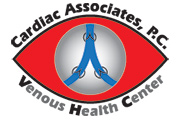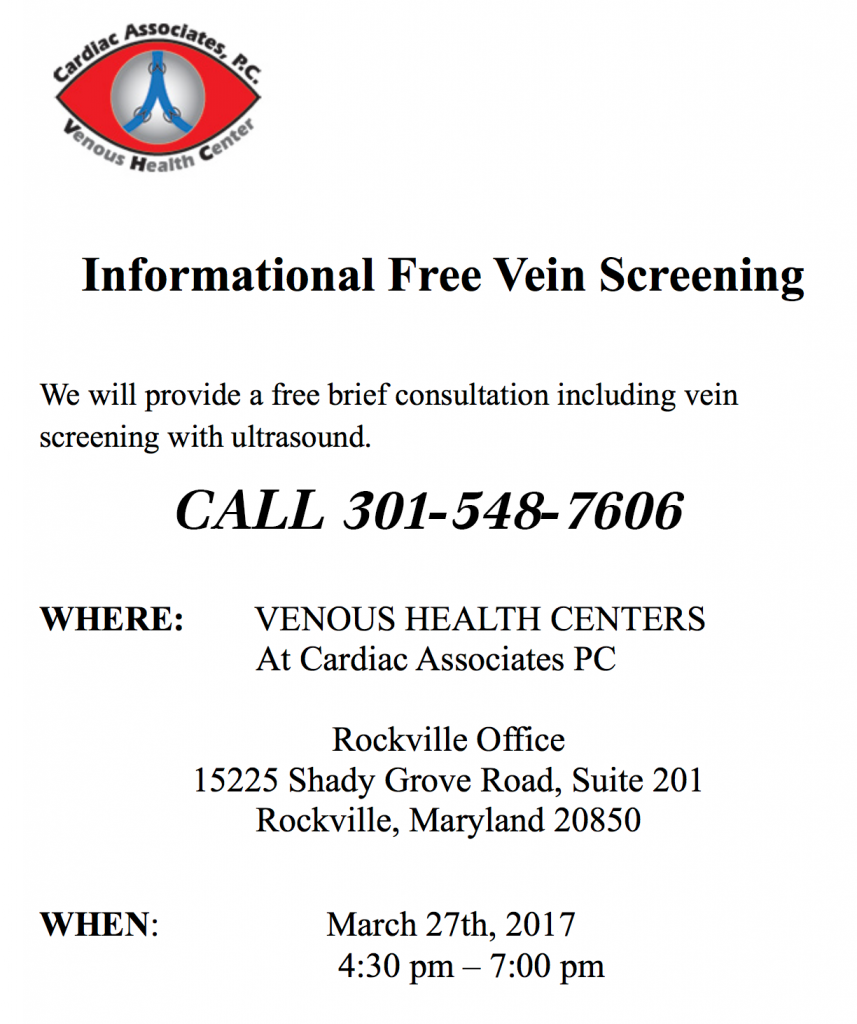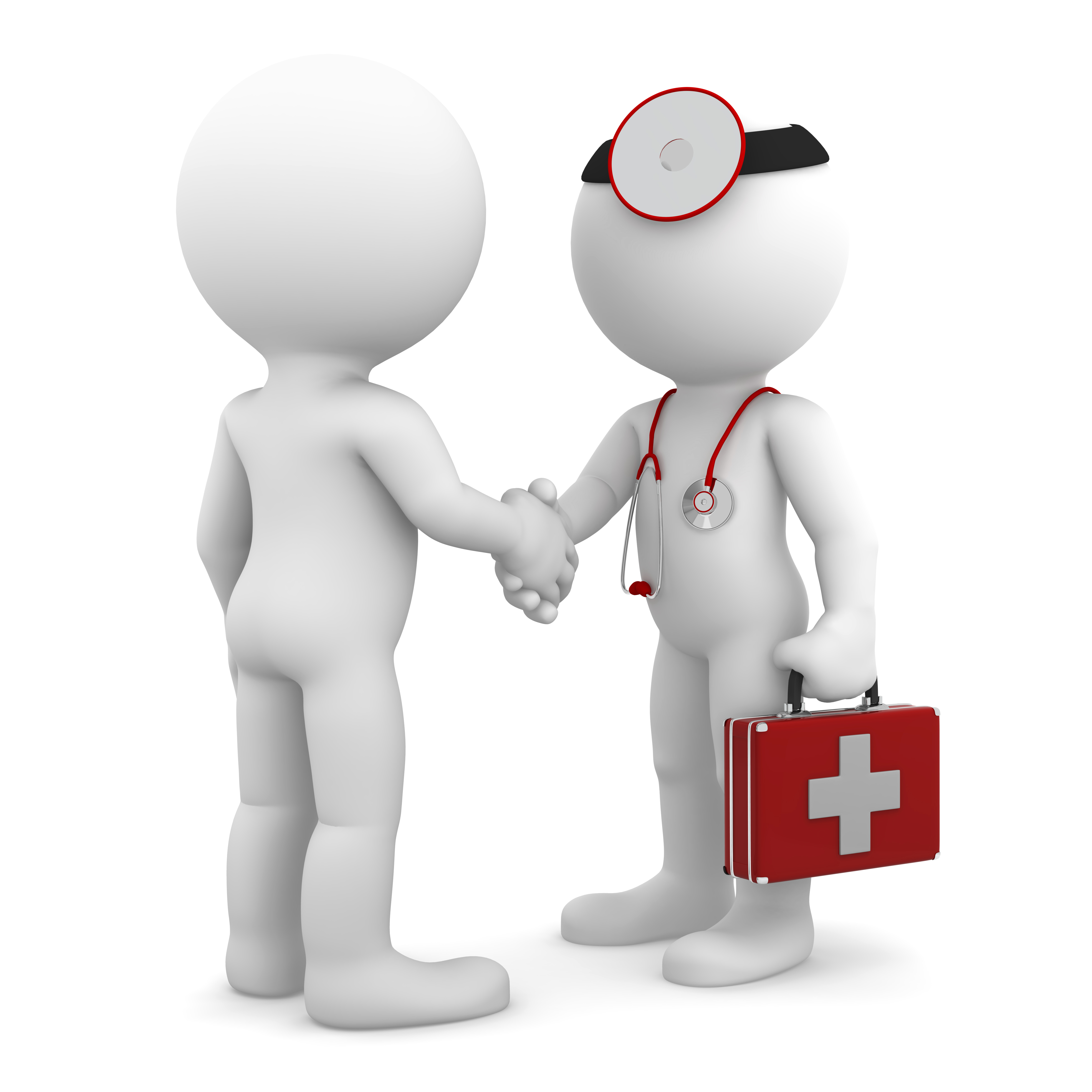
News

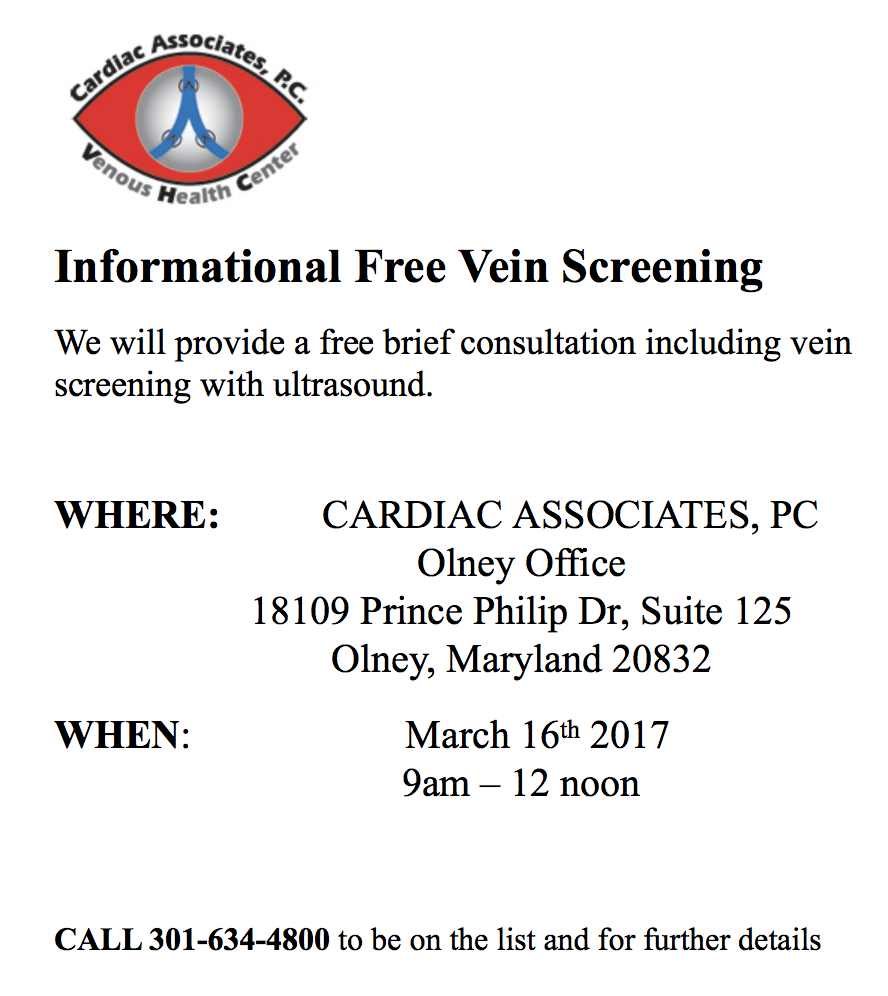
Informational Free Vein Screening
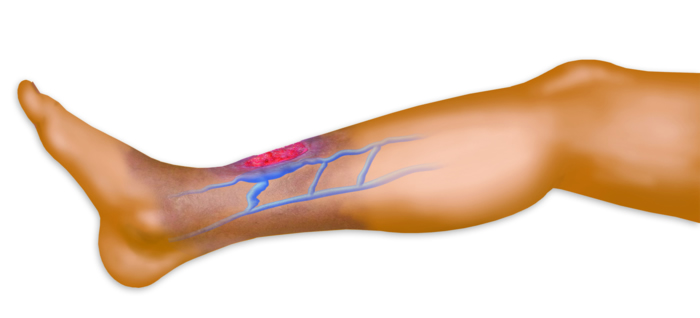
Vein Clinic in Rockville, MD Publishes a New Article That Explains the Differences between Invasive, Non-Invasive, and Minimally-Invasive Medical Procedures
December 26, 2016. Washington, DC. Venous Health Centers releases a new article in which they explain the differences between “invasive,” “non-invasive,” and “minimally-invasive” medical procedures. According to the doctors at this prestigious vein clinic in Rockville, MD, these distinctions are important, because they have an impact both on the effectiveness of medical treatment and on the patient’s treatment experience.
According to Dr. Hamza Rana, widely considered one of the best vein doctors in Germantown, MD, “One of the most important benefits of non-invasive diagnostic methods and minimally-invasive treatment techniques is that they can be performed in the comfort of our offices. Treatments that used to require hospitalization and lost time away from work can now be treated in under an hour, after which you walk out and return to your normal activities.” These vein specialists in Germantown, MD want patients and the general public to understand the advances that have been made in the treatment of vein disease, and how fast, easy, and painless modern treatment methods are.
These Montgomery County varicose vein doctors feel that if the public becomes more aware of the non-invasive and minimally-invasive ways that vein disease is treated today, they will be more likely to seek treatment. Interested readers can find more information about this and other vein health topics at: https://www.venoushealthcenters.com//.
Varicose Vein Treatment Options
Varicose veins and spider veins are both common problems among adults in the United States. They affect over 30 million people of both sexes, although women are more likely to experience them than men. Varicose veins are the larger of the two issues, appearing as twisted, bluish veins raised above the skin. Spider veins are smaller and take on a web-like appearance.
Safe and effective vein treatments are available for both spider and varicose veins. These treatments include sclerotherapy, microphlebectomy, and endovenous radiofrequency ablation. All of these procedures have the benefit of being minimally invasive, allowing them to be performed on an outpatient basis in the doctor’s office. These treatments help to restore both the beauty and the health of the legs while minimizing downtime and discomfort.
About Venous Health Centers
Venous Health Centers is a leading cardiovascular practice serving the Washington DC metro area. Venous Health Centers offers the latest in minimally invasive procedures to successfully treat the widest variety of patients and conditions such as spider and varicose veins, deep vein thrombosis, and venous ulcers. The center is led by Dr. Hamza Rana, an established vein specialist and one of the only physicians in the Washington DC and Monterrey County area with the honor of holding board certification from both the American Board of Venous and Lymphatic Medicine and the American Board of Vascular Medicine. Dr. Rana and the Venous Health Centers medical team are dedicated to providing comprehensive venous care tailored to suit individual medical needs and outcome goals. Patients can look forward to fast, easy treatment options that allow for healthier bodies and happier lives free from vein disease.
Venous Health Centers
Tel. 301-637-3088
https://www.venoushealthcenters.com//

A Rockville, MD Vein Clinic Explains the Differences between Invasive, Non-Invasive, and Minimally-Invasive Medical Procedures
In the News articles we provide on this website, we often use the terms “non-invasive” or “minimally-invasive” to describe the procedures we use to treat vein disease, to distinguish them from more traditional “invasive” procedures. So in the interest of clarity, we’ll explain what each of these terms means, and how they affect you as a patient.
Invasive procedures
In medical terms, an invasive procedure is one in which the physician has to either break the skin or enter it through a body cavity. Thus all open surgery is considered invasive, because it requires that surgeons make incisions in the skin with a scalpel, which in turn requires that either local or general anesthesia be used during the procedure. Invasive procedures can be both necessary and life-saving (consider the occasional need for heart surgery, for example). But at the same time invasive procedures incur certain risks, leave scars, and often require lengthy periods of time to recover from. Only a few years ago, back in the “bad old days” of vein disease treatment, an invasive procedure called “vein stripping” was the only way to permanently remove varicose veins.
Non-invasive procedures
In contrast, non-invasive procedures do not require doctors to break the skin or intrude into a body cavity. If your cardiologist recommends that you have an electrocardiogram (ECG or EKG), that is a non-invasive procedure, because the data is obtained through electrodes pasted to the surface of your skin. Other non-invasive procedures related to vein care would be the use of ultrasound to look beneath the surface of the skin to detect vein disease. Most of the diagnostic methods we use in our Rockville, MD vein clinic are non-invasive.
Minimally-invasive procedures
Technically, even getting a flu shot is somewhat invasive, because the needle breaks the skin. But what doctors mean by a minimally-invasive procedure (MIP) is one that accomplishes the same purpose as open surgery, but in a way that is much less invasive. In the treatment of vein disease, such procedures include sclerotherapy, in which a tiny catheter is inserted into a vein to inject a sealing agent and close it, or endovenous laser treatment, in which a tiny laser is inserted into a vein and used to close varicose veins.
MIPs offer many benefits over open surgery and other forms of treatment. Because there are no large incisions, there is less pain and so in many cases even local anesthesia is not needed. The MIPs that our Germantown MD vein specialists use also leave no scars and require no recovery period; it is common for patients to walk into our offices with varicose veins and walk out without them, all in about an hour, and without ever going to a hospital.
How do I find out more about modern minimally-invasive treatments?
If you have varicose veins or spider veins and are interested in finding out how fast, painless, and easy vein treatment in NYC is these days, we recommend that you spend some time looking over the informative articles we’ve provided on our website at https://www.venoushealthcenters.com//. Or, if you’d prefer to speak to us in person, just give us a call at 301-637-3088 and allow the experts at Venous Health Centers to explain all of their minimally-invasive treatment options to you.
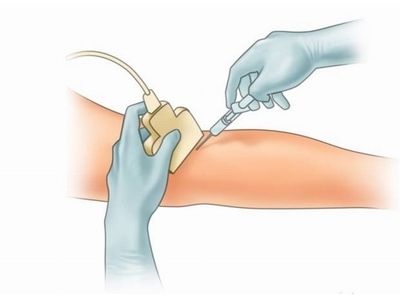
A Varicose Vein Doctor in Montgomery County Explains Why Experts Know That Seeing a Vein Doctor Is a Good Idea
One of the most disturbing things we encounter in our practice as varicose vein doctors in Rockville is examining a new patient, finding that they have a fairly advanced case of vein disease, and then learning from the patient that their GP told them to see a vein doctor years earlier, but they didn’t do it.
When we ask them why they ignored their own doctor’s advice, and thus allowed their vein disease to get significantly worse, more often than not they tell us that they didn’t know that vein disease was serious, and so they decided to try to “live with it.” Unfortunately, in most cases this decision meant that by the time they did see a vein doctor, their condition had worsened, and they were in constant pain.
When your GP tells you to see a specialist, DO IT
Diagnosing and treating disease conditions can require very specialized talents and skills that require a great deal of training and on-the-job experience. As an example, if your GP examined you and said you should see a heart specialist, you’d do it, right? You would want the kind of specialized medical care that only a trained cardiologist can offer. Well, similarly, it takes many years to master the use of Doppler ultrasound to look beneath the surface of the skin and detect the presence of diseases such as chronic venous insufficiency (CVI) or deep vein thrombosis (DVT). And it takes even more years to master the minimally-invasive interventional radiology procedures used to treat them.
One of the reasons Venous Health Centers is considered one of the best vein centers in Rockville, MD is that we have that level of training and expertise. We know which minor cases of varicose veins can be treated conservatively with diet, exercise, and the use of compression stockings. And we also know which cases of varicose veins are more serious, and can really only be treated by removing them completely. Left untreated, these more serious cases won’t ever get better or “go away on their own” – they’ll get worse, and can result in years of pain, discomfort, and even disability.
So our advice is to trust your GP and follow his or her advice
As a general rule, when your general practitioner tells you that you need to see a medical specialist, do it. They’re telling you this to make sure you get the kind of medical expertise you need to get better. And if you’re reading this article after having been told by your GP that he or she has noticed early signs of spider veins, varicose veins, or even DVT, the best advice we can give you is don’t procrastinate – find a qualified varicose vein doctor in Montgomery County and trust them to help you.
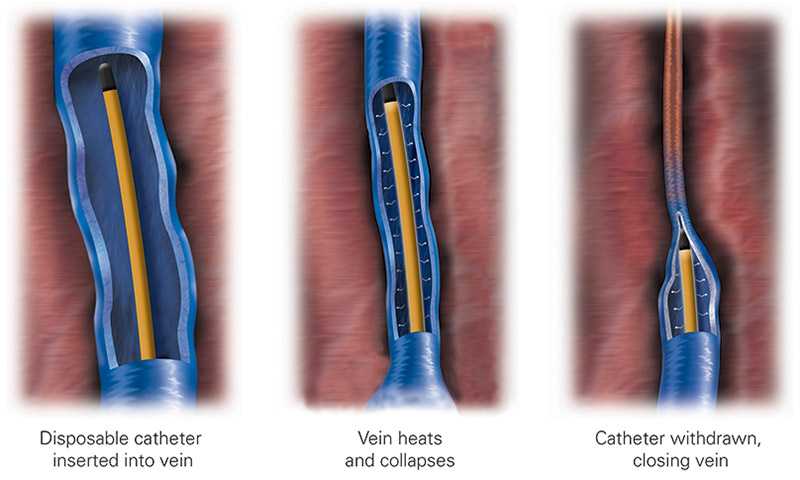
A Top Vein Center in Rockville Presents “An Expert’s Guide to Swollen Legs and Ankles
If you occasionally experience swelling in your legs and ankles, that means that you’re probably normal. Most such swelling is caused by injuries or sprains while exercising or otherwise “overdoing it.” But if you experience chronically swollen \legs and ankles – meaning that the swelling lasts more than a couple of days, or occurs more than once a month – then varicose vein doctors in Montgomery County want you to know that it could be a symptom of vein disease.
What Montgomery County residents should know about swollen legs & ankles
When your veins are healthy, the flow of blood from your legs back to your heart and lungs is unimpeded. But if you have developed a vein disease called chronic venous insufficiency (CVI), the valves that normally close after blood passes through them become “leaky” and allow blood to flow back into the veins.
This causes them to swell and become varicose, but as Rockville varicose vein doctors will tell you, it also has a big impact on your overall circulation. When you have CVI and/or varicose veins, what happens is that your body loses its ability to reabsorb fluids, resulting in edema, swelling of the lower extremities. While this swelling initially seems like a minor problem, if untreated it can become serious.
Even “just” swollen legs and ankles can disrupt your health
Untreated swelling caused by CVI can very quickly become painful, which can cause you to become less mobile, and to get less exercise. This is a big problem, because health officials have recently pinpointed inactivity as one of the biggest health dangers on the planet, one that kills more people every year worldwide than smoking. But even on a psychological level, if you don’t do anything about the swelling and the pain and end up staying at home rather than going out, this can quickly erode your self-confidence and increase your risk of depression.
So what can you do about swollen legs and ankles?
The most important thing you should do if you suffer from swollen legs & ankles is contact one of the most trusted vein clinics in Rockville, MD and schedule a venous health screening to find out what the cause of the swelling is. These checkups take only about an hour, and are completely painless and non-invasive, but they allow your varicose vein doctor in Olney, MD to determine whether the cause is CVI or a similar vein disease.
If it is, these professionals can recommend treatments to eliminate the swelling by treating the underlying vein disease. Like the screening, these treatments are minimally-invasive, painless, and fast, and they can have you back on your feet in a matter of days. So pick up your phone and call a top vein center in Rockville at 301-637-3088 and set up an appointment for your own venous health screening. You’ll be happy you did.
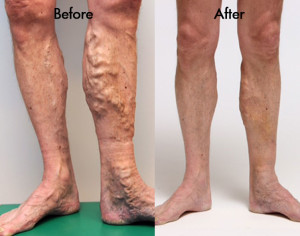
A Varicose Vein Doctor in Rockville Answers the Question, “Which Is More Dangerous – Vein Disease or Arterial Disease?”
The question in the title of this article is a good one, because both vein disease and arterial disease are both forms of vascular disease – conditions that impair your circulatory system. Within that system, your arteries are in charge of pumping blood containing oxygen and nutrients from your heart to your organs and extremities, and your veins are in charge of pumping that blood back to the heart and lungs so that it can be renewed. To be healthy, you need both healthy veins and arteries, so any form of vascular disease is dangerous.
However, some types of vascular disease are more dangerous than others
According to our varicose vein doctor in Rockville, one way of assessing the relative danger of arterial disease compared to vein disease is to count the number of deaths due to each. And if we use that measure, then the most dangerous is certainly arterial disease. Two of the most common causes of death worldwide are atherosclerosis (“hardening of the arteries”) and peripheral arterial disease, and if your arteries become affected by either of these conditions, the result can be heart attack, stroke, or kidney failure. Another arterial disease, carotid artery stenosis, can cause a type of mini-stroke that can later lead to a full stroke.
To balance this, the experienced vein specialists in Germantown, MD can point out that there is a type of vein disease called deep vein thrombosis (DVT), and that over 300,000 Americans die every year from its complications.
So they’re both dangerous – how do you know if you have vascular disease?
The answer in either case – vein disease or arterial disease – is “See a specialist.” At our vein clinic in Rockville MD, that’s easier because our practice contains both experienced cardiologists and experienced vein doctors.
One important thing to remember with either type of vascular disease is that you can’t assume you don’t have it because you haven’t noticed any symptoms. Many forms of vein disease and arterial disease don’t have overt symptoms that a layman could detect, and so diagnosing these conditions requires special equipment and years of training and experience in how to use it, and how to interpret the results.
Another important thing to remember is that most of the tests used to detect vascular disease are painless and non-invasive, and take only about an hour. So give us a call at 301-637-3088 and schedule an appointment for a checkup. It’s a “win-win situation,” because if we find you have vascular disease we can tell you how to treat it, and if we find that you don’t have it yet but are at high risk of developing it, we can tell you how to prevent it.
